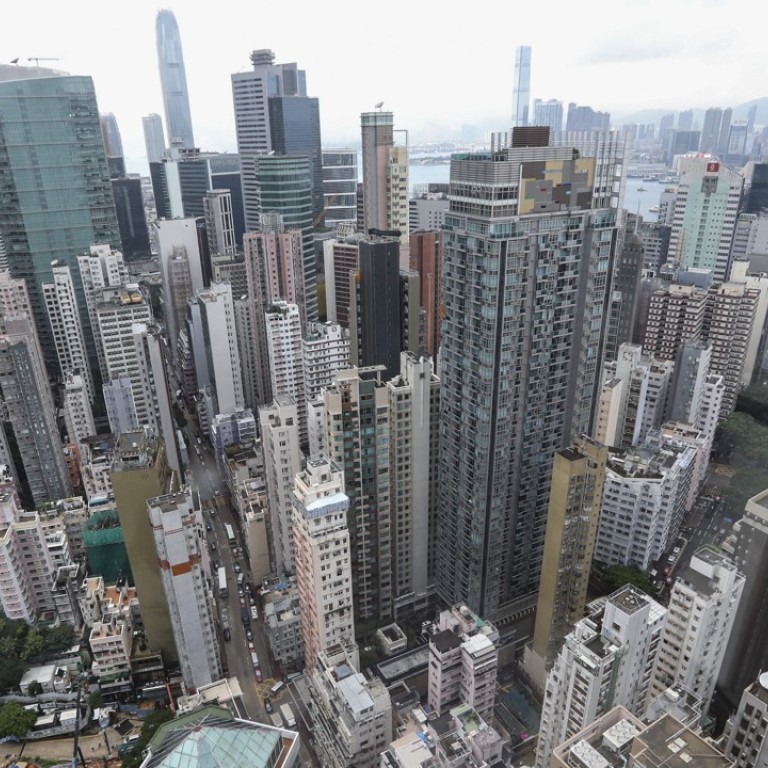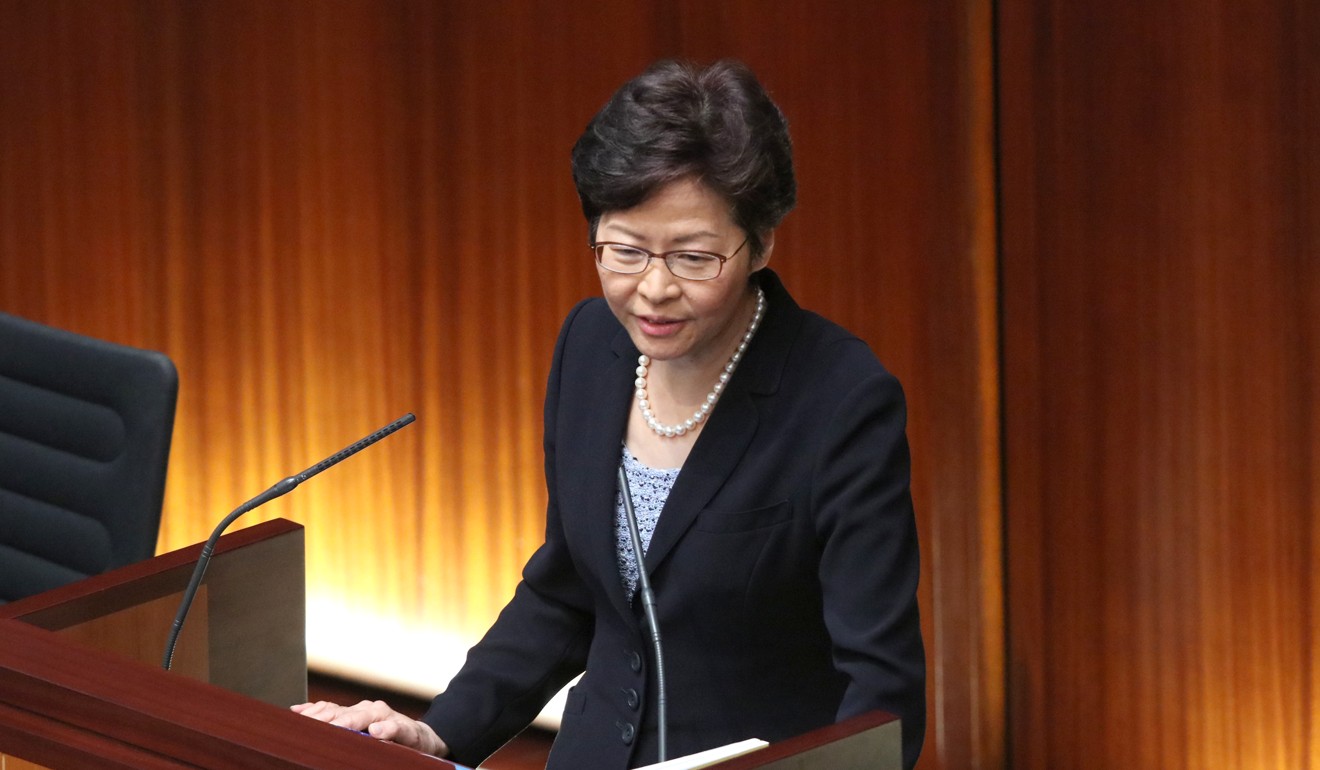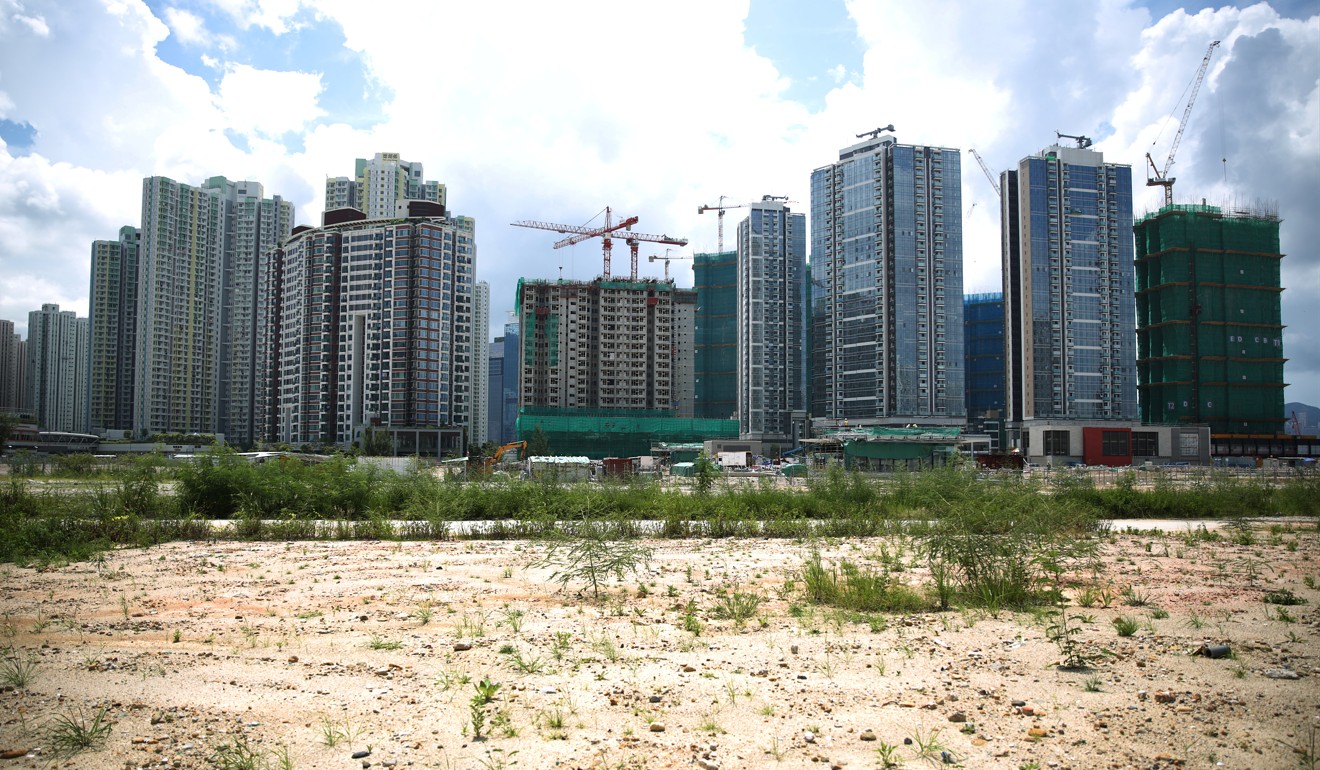
Restrictions on Hong Kong property market to cool prices won’t change, leader indicates
Chief Executive Carrie Lam says measures already ‘very tough’ and she does not want to provoke an ‘irrational market response’
Hong Kong leader Carrie Lam Cheng Yuet-ngor on Thursday indicated she had no intention of easing or strengthening measures to cool the city’s overheated property market, but she did raise the prospect of amending the rules on stamp duty.
Due to current mortgage restrictions, Lam said, it had become “very difficult” for many aspiring buyers to stump up inflated down payments, in many cases up to 40 or 50 per cent of the property price, and borrow the rest from banks.
Demand for Hong Kong flats appears to defy cooling measures
“For many policies, once they have been put in place, if we were to suddenly remove them, it would be hard to foresee how the market would react,” she said on a radio programme.

“Property prices have already gone up so much. Any signals to society that the government will ease or remove the cooling measures could lead to an irrational market response.”
But Lam did raise the prospect of amending stamp duty rules, as has been suggested by several members of Hong Kong’s legislature.
Watch: Why is Hong Kong housing so expensive?
Hong Kong property market continues to follow a path of growth in 20 years since handover
Under current policy, buyers of second homes have to pay an additional stamp duty of 15 per cent.
But if a buyer of a second flat manages to sell their first flat within six months of the new flat being purchased, he or she can obtain a full rebate of that tax. The policy is designed to encourage people to give up flats they do not live in so they will be available to the market.
Some lawmakers, such as the Democratic Party’s James To Kun-sun, have said this additional stamp duty imposes a heavy financial burden on genuine users moving into new homes. He earlier said that six months was not long enough for people to offload their first property onto the market at a reasonable price, and suggested the rebate period be extended to nine months.
On Thursday, Lam said she had studied that suggestion and there was “room” to implement it.
7 things you need to know from Hong Kong leader Carrie Lam’s policy address
“The good thing about an administration in a new term is that you can look at things all over again,” she said.
“And like I have been saying since the election campaign, I really want to improve the relationship between the legislature and the administration … If requests are reasonable and the public are supportive, I am willing to do so.”

Before Lam’s policy address on Wednesday, the Real Estate Developers Association suggested the government relax stamp duty rules to revive the second-hand property market.
The association said extra stamp duties had failed to cool the market and had instead only restricted supply in the second-hand market.
Hong Kong government should lift cooling measures to free up supply in secondary market
Economics professor Ho Lok-sang, who helped compile the study which reached those conclusions, recommended the government exempt buyers of second homes from the 15 per cent tax as long as they had publicly declared the number of properties they were holding and would maintain that number no matter how many times they bought and sold.
Ho also argued that property owners who might have sold their homes to buy a bigger one had chosen to hold on to their flats, meaning entry-level buyers had fewer homes to choose from in the second-hand market.
He cited official figures which showed the prices of flats smaller than 430 sq ft rose faster than those for bigger flats between 2012 and 2013.

